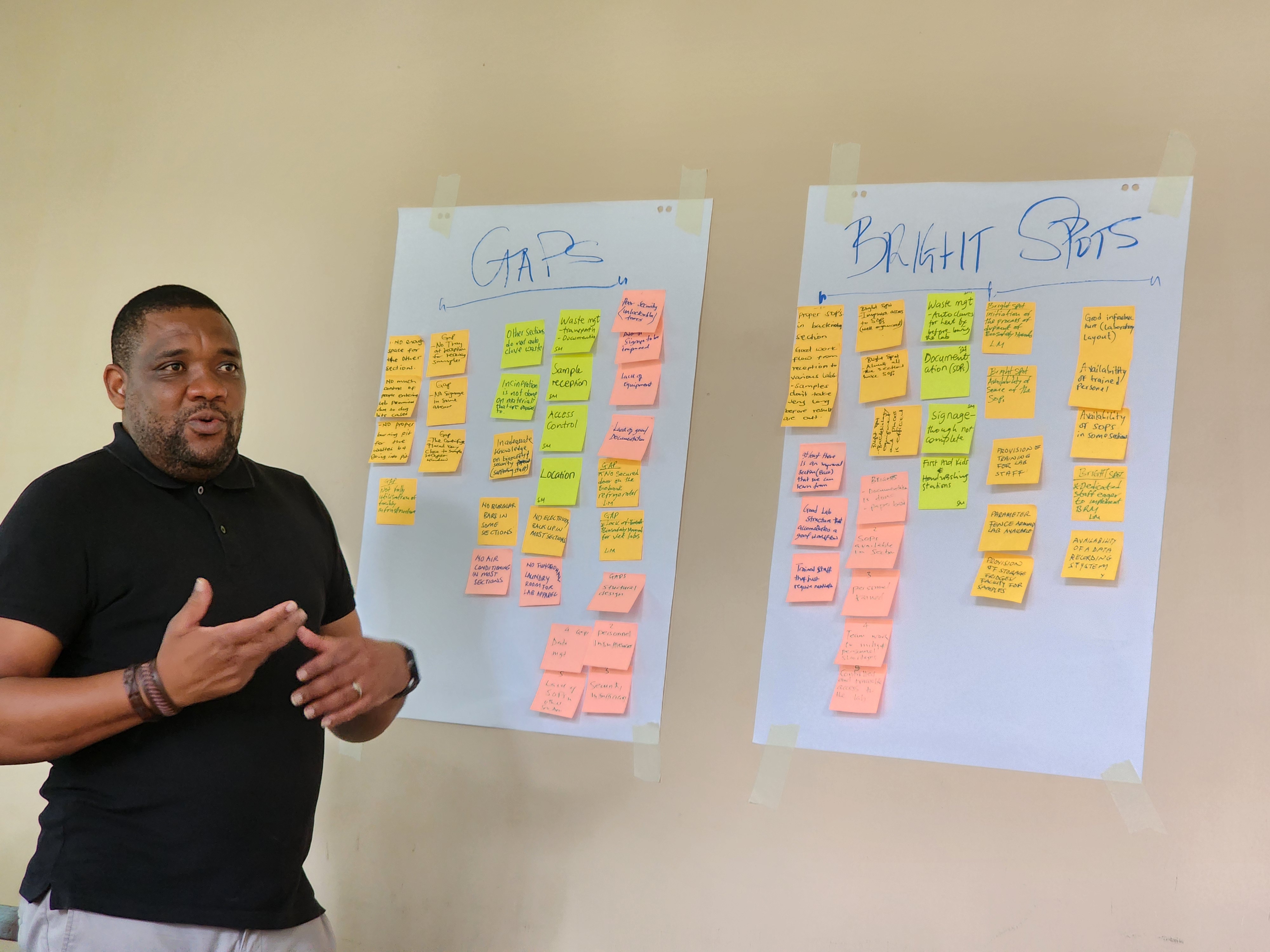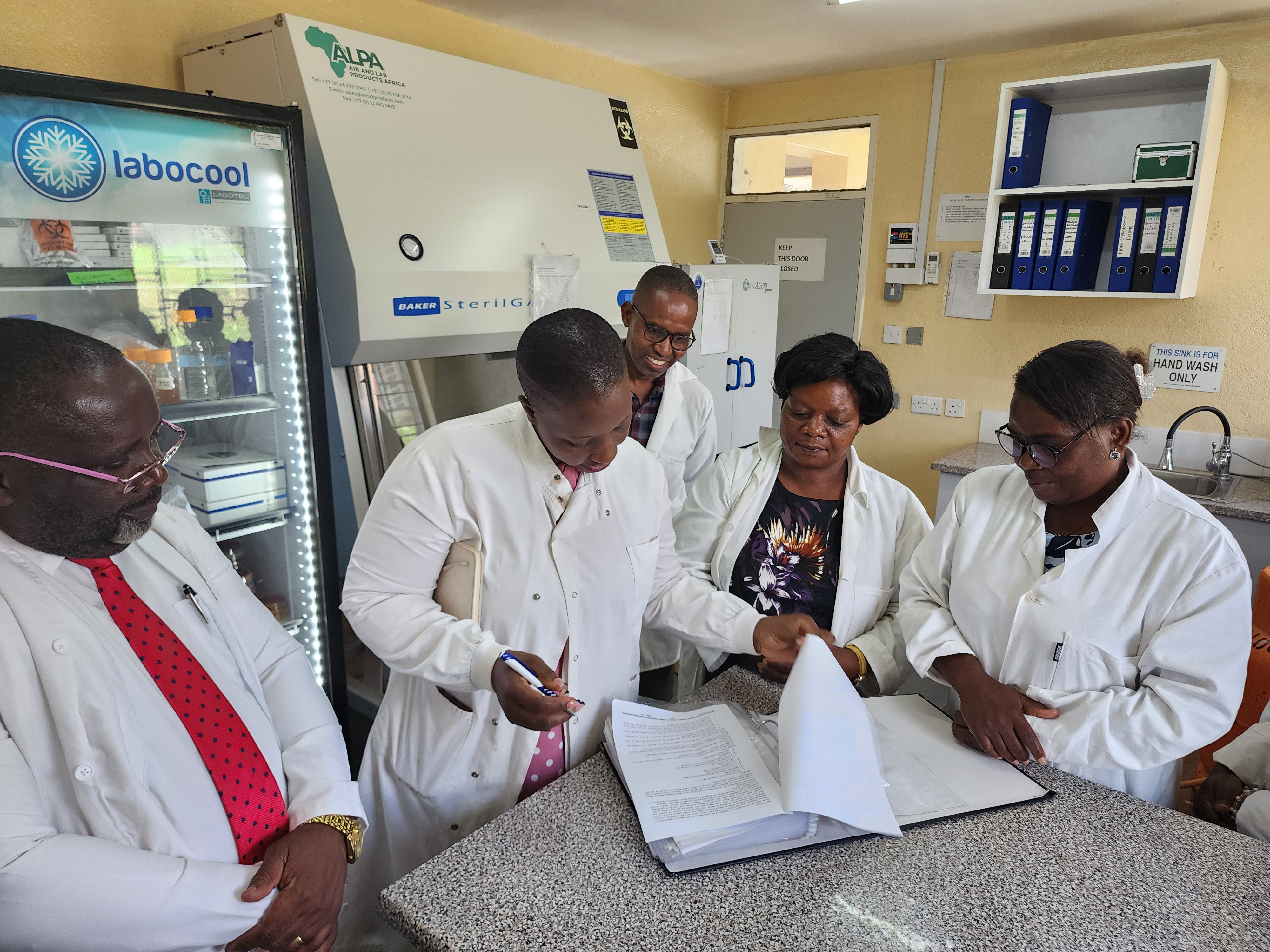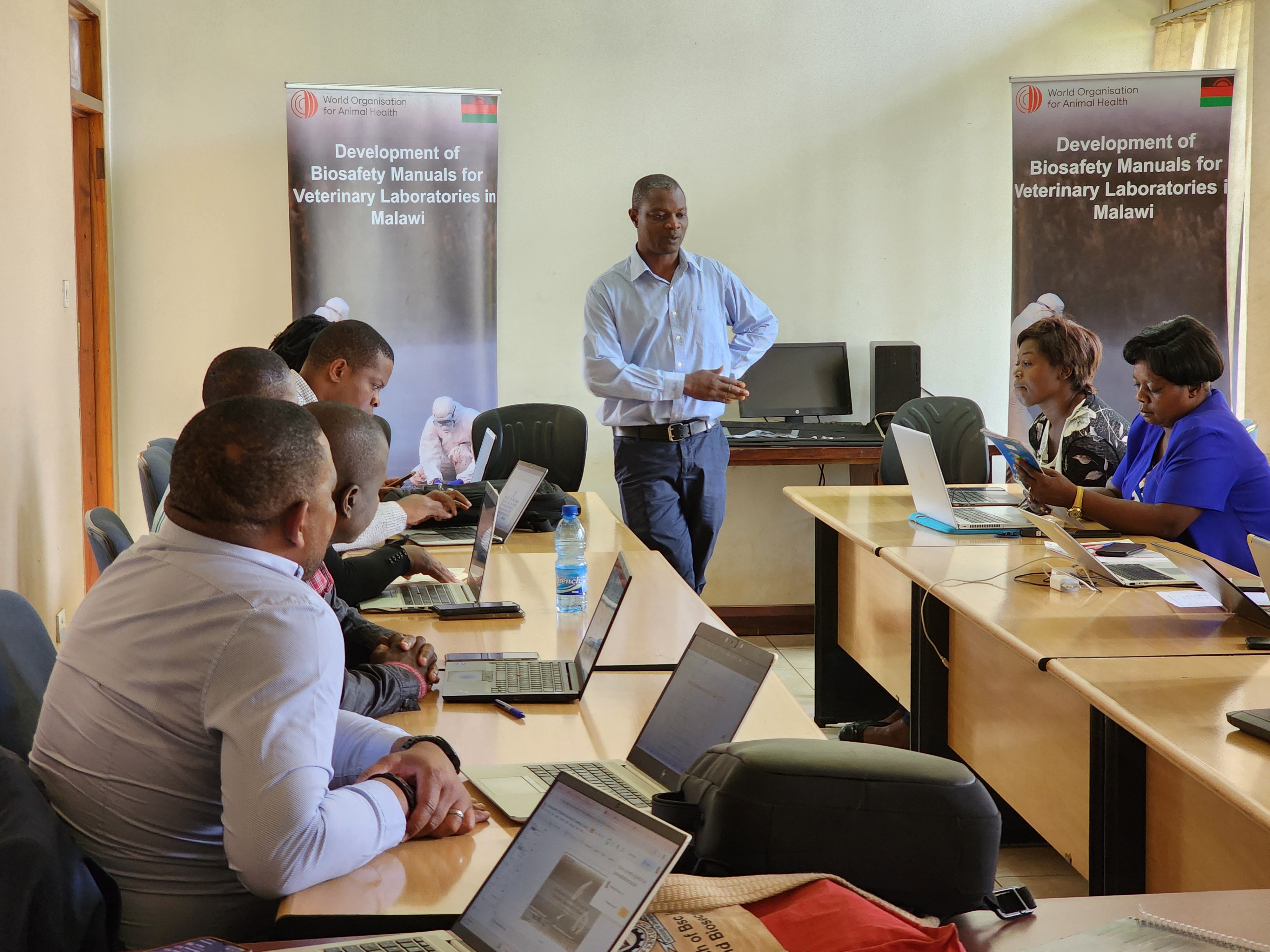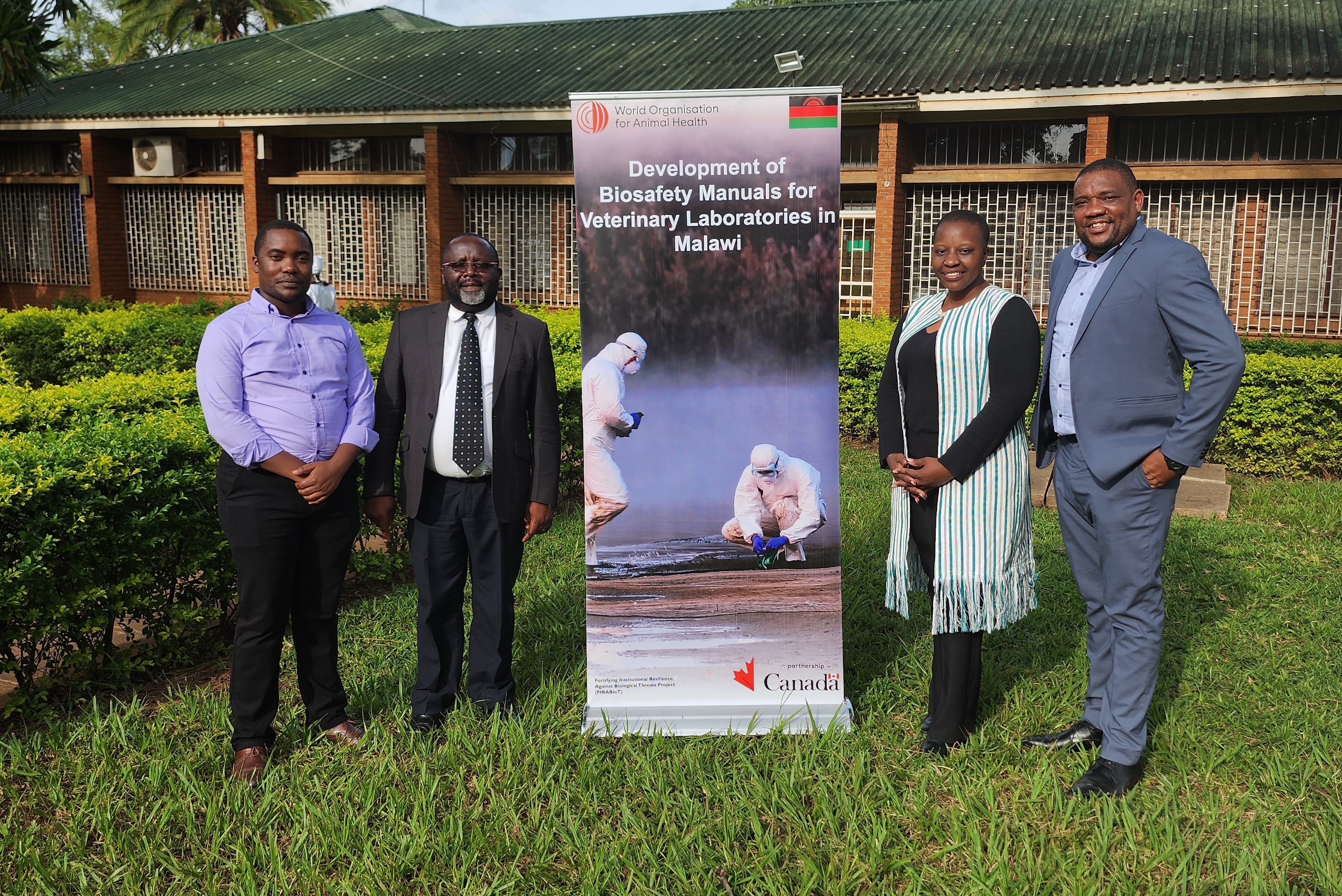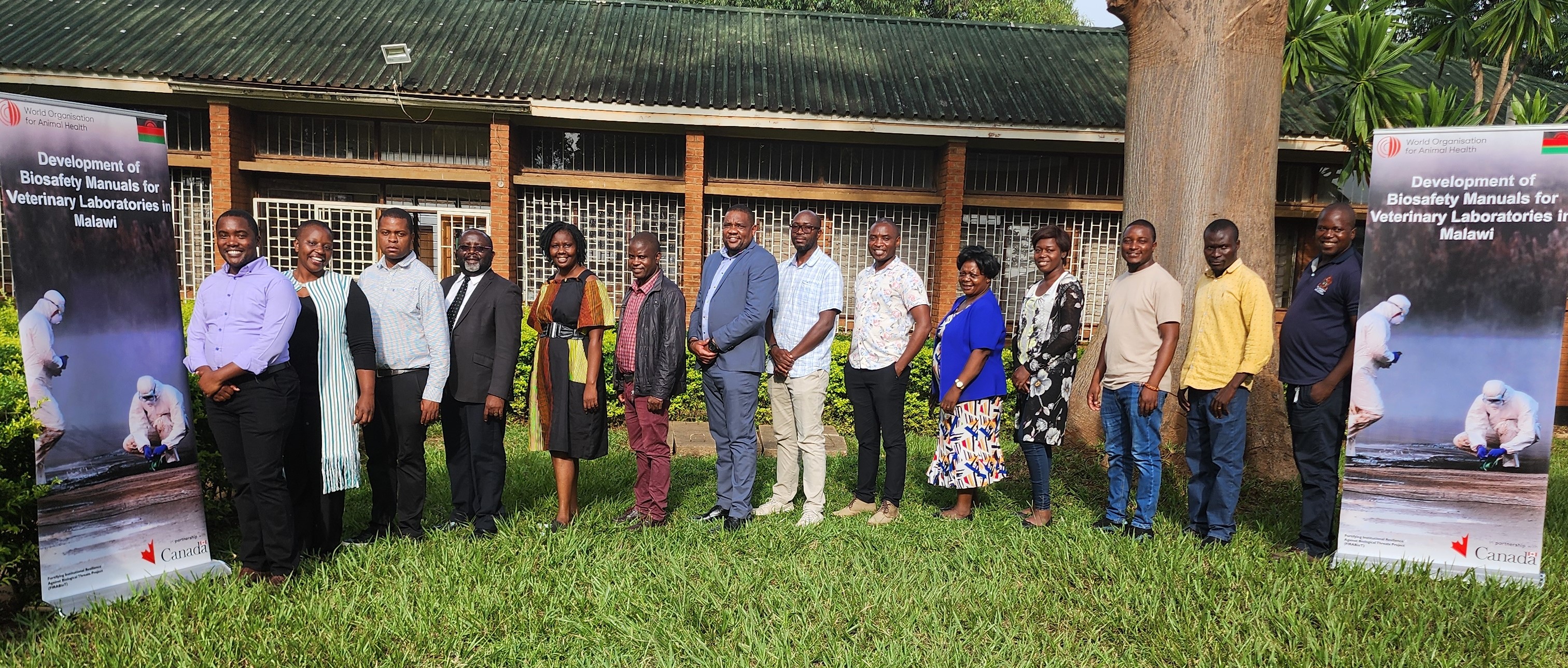
Establishing proper biological risk management systems in Malawi’s veterinary laboratories significantly enhances the country’s capacity to detect and respond to biothreats, ensuring swift and effective management of potential outbreaks. This capacity further contributes to Malawi’s efforts to address the risk of agro-crime and agro-terrorism by ensure safe handling and storage of animal pathogens within the laboratories.
In line with these efforts, Malawi has taken significant steps forward in enhancing its biological risk management capabilities, thanks to a recent initiative by the World Organisation for Animal Health (WOAH). As part of the Fortifying Institutional Resilience Against Biological Threats (FIRABioT) Project, WOAH supported Malawi in drafting comprehensive biological risk management manuals for the central and regional veterinary laboratories. This initiative which took place 17 to 28 February 2025, included field visits to veterinary laboratories in Blantyre, Mzuzu, and Lilongwe, and culminated in a writeshop (writing workshop) where the participants consolidated their efforts and finalised the manuals.
The FIRABioT Project, launched in March 2023 and funded by Global Affairs Canada’s Weapons Threat Reduction Program, seeks as one of its objectives, to enhance the capacity of WOAH Members, particularly in Africa, to respond effectively to biological threats, including agro-crime and agro-terrorism. The drafting mission was organised as a follow-up activity to the biosafety and biosecurity training for animal health laboratories in Malawi that was held in October 2023 under the same project.
Mr James Sakwa (left) and Ms Vimbai Mukondiwa (2nd left) during the tour of Blantyre Regional Veterinary Laboratory. Photo © I. Busuulwa (woah) 2025
The mission began with field visits to the Blantyre Regional Veterinary Laboratory (BRVL), Mzuzu Regional Veterinary Laboratory (MRVL), and the Central Veterinary Laboratory (CVL). During these visits, WOAH experts conducted biological risk assessments, identified gaps, and proposed mitigation measures. They worked with each laboratory’s staff to edit and finalise laboratory-specific biological risk management manuals that had been drafted by the laboratory staff ahead of the mission.
Following the field visits, a writeshop was held at the Central Veterinary Laboratory in Lilongwe. Representatives from all three laboratories participated in the writeshop, where they consolidated the lab-specific documents into a comprehensive national biological risk management manual. The writeshop also included training sessions on standard operating procedure (SOP) writing and pathogen risk assessment, addressing identified gaps across the laboratories.
Dr Joseph Nkhoma, Head of Malawi’s Central Veterinary Laboratory, and Acting Deputy Director for Veterinary Research and Investigations addresses the participants of the writeshop. Photo © I. Busuulwa (woah) 2025
The mission highlighted several easily implementable and sustainable biological risk management measures for each laboratory, and areas of good practice that can be scaled across Malawi. These included proper documentation of processes [standard operating procedures (SOPs)], labelling/signage, inventory management for all lab equipment and fittings, among others. Having the biological risk management manuals drafted by the laboratory staff combined with the experts’ visit to each laboratory ensured that the developed manuals were tailored to each laboratory’s unique situation for easy implementation and sustainability.
“The training benefitted me in a specific way that it helped to remind us of the need to start taking biosafety at the lab more seriously and that it is possible to set up a biosafety program even with the available resources we have.” – Participant feedback
The team of experts was composed of;
L-R Ian Peter Busuulwa (WOAH), James Sakwa (MMUST), Vimbai Grace Mukondiwa (CVL Zimbabwe) and Zibusiso Masuku (NICD). Photo © L. Mthilakuwili (cvl malawi) 2025
Following the drafting mission, the draft guidelines will be shared with the relevant national and regional stakeholders for their input ahead of the validation workshop scheduled for the end of April 2025. The development of biological risk management manuals for Malawi’s veterinary laboratories is part of the country’s activities as a beneficiary of the Fortifying Institutional Resilience against Biological Threats (FIRABioT) Project. This project is funded by Global Affairs Canada’s Weapons Threat Reduction Programme in support of the Global Partnership Signature Initiative to Mitigate Biological Threats in Africa.
